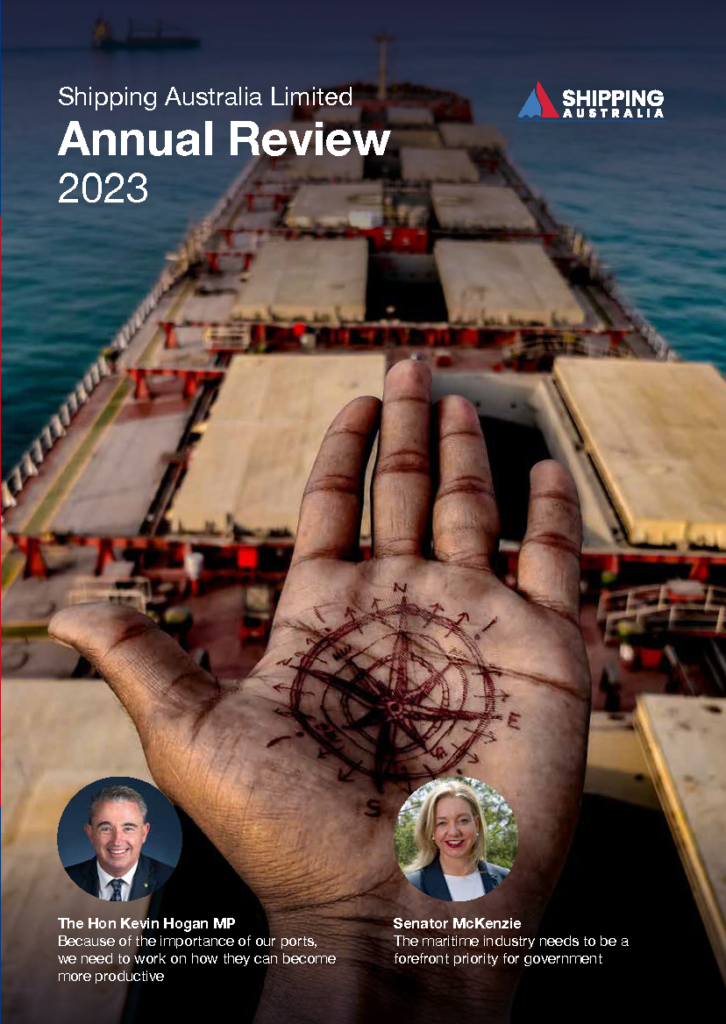
TWW Yachts Sarl v The Yacht “Loretta” (No 1) [2021] FCA 240 – [contract law]
By Holding Redlich Partner Geoff Farnsworth (with thanks to my former colleague Charlie Coleman for the first draft)
It is common to call a particular document a ‘contract’. However, it’s well known that (at law) a ‘contract’ is an enforceable legal obligation and not just the document (or text message or email), though a contract is often evidenced by written instruments.
It is equally true that it can be hard to identify when negotiations have ended and a binding contract has begun. Lawyers will often refer to the High Court decision of Masters v Cameron (1954) 91 CLR 353 at 360 as guidance on when a contract may be said to exist.
This is why the ‘gold standard’ is a written document, signed by the parties, and may contain clauses which say (for example) that the document prevails over any earlier documents, and that any variation must be in writing signed by the parties.
As stated by his Honour Justice Rares at the beginning of his judgment in “Loretta” (TWW Yachts Sarl v The Yacht “Loretta” (No 1) [2021] FCA 240), “a verbal contract isn’t worth the paper it’s written on”. The decision considered whether a written contract for a sale of a yacht was varied during the course of a meeting that took place almost three months later.
The MYBA contract form
The decision concerned the sale of a motor yacht on a MYBA (Mediterranean Yacht Brokers Association) form. This is unusual in itself as the MYBA contract contains a London arbitration clause which, in this case, the parties waived.
Under the MYBA form, the parties agree to sell the yacht for the purchase price with a 10% deposit. The contract states a date for documentary completion, with formal acceptance subject to a satisfactory sea trial and survey. If ‘defects’ (as defined) are detected during the trial or survey, unless the parties can agree on a remedy (repair or adjustment to the price) which the contract may be terminated.
The form is also supplemented by addendums dealing with the documents to be provided on completion and any other special terms and conditions.
The parties and the facts
On 17 September 2020, the parties entered into a written contract for the sale and purchase of Loretta, a 40.35-metre pleasure yacht. Completion was to occur on or before 31 January 2021, after which Loretta (which was moored in Queensland) was to be transported to Palma De Mallorca in Spain.
There were multiple parties involved throughout the chain of transactions. But, relevantly, the key parties were Mr Westwood (the buyer’s broker), Dr Valenzia (the buyer’s attorney) and Mr Bender (the seller’s broker).
The issues
The MYBA contract was prepared by Dr Valenzia.
Before completion, however, Addendum 4 of the contract and its multiple versions were the subject of significant dispute.
The ultimate issue in the proceeding was whether, during a virtual meeting between Mr Bender, Dr Valenzia and Mr Westwood on 13 November 2020, the parties made an agreement to vary the terms of the contract as a result of alleged defects which had become apparent during the sea trial and condition survey.
This gave rise to the second point of contention as to whether the buyer performed its obligations under the contract if it was varied. Here, the buyer sought specific performance of the terms of the contract as varied during the meeting on 13 November. Alternatively, the buyer sought damages to recover the initial deposit and freight claims, which were over USD430,000, and for the alleged misleading or deceptive conduct of the seller.
The crucial meeting
On 13 November 2020, a critical telephone conversation occurred between Dr Valenzia, Mr Westwood and Mr Bender. The purpose of this meeting was to clarify the following two elements:
- the buyer would pay the deposit plus AUD$50,000; and
- Mr Westwood would book freight to carry Loretta as cargo to Palma De Mallorca.
The evidence indicated that at this time, all parties had agreed to this as recorded in version 3 of Addendum 4. This was supported by Mr Bender’s comments stating:
“You guys show me the evidence that you booked the freight contract and 50,000 are paid, and we will get the signatures.”
As far as Mr Westwood was concerned, the sale was unconditional, meaning that the contract, as amended by version 3, would proceed.
The contentions following the 13 November meeting
Following this meeting, the buyer booked freight to carry Loretta in accordance with version 3 of Addendum 4. A deposit of USD135,000 was paid and Mr Westwood arranged for the transfer of AUD50,000 to Mr Bender’s account. From here, however, things did not proceed according to plan.
On the same day, the buyer proposed a fourth version of the addendum and sent it to Mr Bender and the seller to countersign. Mr Bender swiftly rejected the amendment to the addendum, and the parties’ relationship broke down.
Parties’ positions
The buyer argued that, in the 13 November 2020 meeting, the parties had reached a binding agreement that fell within the first or second class of contracts discussed in Masters v Cameron. Relevantly, it was argued that its tender of version 4 of the addendum was merely a defective performance that it remedied immediately, but Mr Bender rejected it.
The buyer also contended that, even before it tendered the signed copy of version 3 on 14 November 2020, the seller was bound to execute its counterpart of version 3 because the buyer, by then, had provided all the consideration required according to the agreement reached on 13 November 2020.
On the seller’s version of events, it wanted the buyer, first, to enter into the freight contract (or one like it), secondly, to make the AUD50,000 payment and, thirdly, to tender a copy of version 3 executed by it, in effect, as a gesture of good faith on the part of the buyer, which the seller then could assess to determine whether or not it would agree to enter into version 3. The seller submitted that it was not obliged to enter into version 3, even if the buyer had acted as it had stipulated, because it wanted to see if the buyer was willing and had the resources to complete the transaction.
The court’s finding
Rares J unequivocally held that the exchange that occurred during the meeting on 13 November 2020 should be characterised as resulting in an agreement in the second class of Masters 91 CLR. He found that an objective person would have understood that if the buyer arranged for a shipping contract (which both parties knew involved a very substantial outlay of money, in the hundreds of thousands of dollars), and paid the AUD50,000, the contract would be varied as provided in the terms of version 3.
Rares J also stated that it would make “no commercial sense” for the seller to subsequently be able to decide he did not want to authorise or sign version 3 once the buyer had satisfied the agreed conditions. Consequently, the buyer was entitled to an order of specific performance.
Conclusion
Whether or not parties have entered into a binding and enforceable contract will be assessed objectively, taking into account words and actions, including documents created by the parties.
As a result, it is not uncommon for a party to genuinely mean one thing by their acts, but for courts (or arbitrators) to interpret it quite differently.
This is particularly the case in fast-moving business dealings where parties may have competing commercial objectives.
Disclaimer
The information in this article is of a general nature and is not intended to address the circumstances of any particular individual or entity. Although we endeavour to provide accurate and timely information, we do not guarantee that the information in this article is accurate at the date it is received or that it will continue to be accurate in the future.


